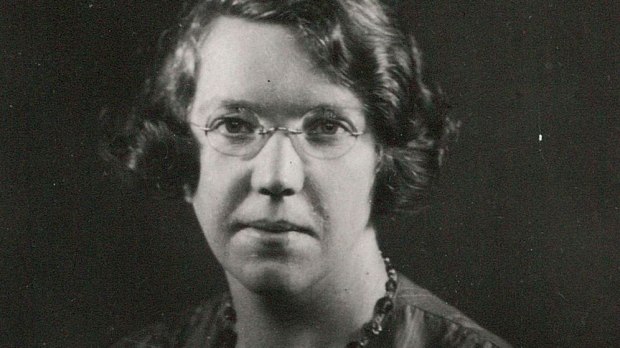By now, history has uncovered enough examples of heroism during World War II that no one who is honest can claim that Christians failed to do enough to help save Jews from Adolf Hitler’s demonic plans. Just this month, a National Geographic documentary shed new light on the efforts of Pope Pius XII to counter the Fuhrer’s designs.
Now, the History Channel has reported the discovery of new information on a simple but determined Christian woman from Scotland who defended up to 300 young lives, most of them Jewish, in Hungary.
Jane Haining had already been declared “righteous among the nations,” a designation used by Israel’s Holocaust memorial, Yad Vashem, to honor Gentiles who risked their lives to save Jews from the Nazis. But the discovery of Haining’s handwritten will, along with previously unpublished photographs and documents, is “shedding new light on her extraordinary heroism,” History says.
Haining was vacationing in Cornwall, England, in September 1939, but she immediately returned to her post as a matron in the girls’ home of the Scottish Missionary School in Budapest when news came that Germany had invaded Poland. That invasion set off World War II and would lead to countless horrors, including the concentration camp in Poland where Haining would end her life less than five years later.
Born in 1897, Haining grew up on a farm and spent 10 years working as a secretary in a thread company. In the early 1930s, Haining moved to Budapest, where she took charge of several hundred students—many of them members of the city’s growing Jewish population—at the missionary school. Church authorities ordered Haining home several times after war broke out, but Haining repeatedly refused, according to Ravasz, saying “I shall continue to do my duty…and stick to my post.”
That is one revelation discovered in a long-forgotten box in the archives of the Church of Scotland’s World Mission Council, in Edinburgh. It was part of a 1945 report by Laszlo Ravasz, a Polish leader of the Reformed Church who also helped to save Jews.
The History Channel explains:
In March 1944, Nazi troops entered Budapest. Haining stood her ground, even as she was forced to sew yellow Stars of David on the Jewish girls’ clothes on the orders of the Gestapo. Even while under surveillance, Haining went to a market at 5 a.m. to get food for the girls in her care; she also cut up her leather luggage to make soles for their shoes. But after she caught the cook’s son-in-law raiding the scarce food supply she put aside for her charges, he betrayed her to the Nazis.
Haining was sent to do forced labor at Auschwitz in May 1944; she died that July.
Researchers at the World Mission Council stumbled across Haining’s will while rummaging through the archives in preparation for an exhibition in Budapest commemorating the upcoming 175th anniversary of the founding of the Church of Scotland Mission there.
“To be opened in the event of my death,” Haining wrote on the envelope containing the document, dated July 1942. She lays out who should receive any “money left after meeting funeral expenses,” along with her possessions, including a wireless radio, fur coat, typewriter and watches.
The box also held some 70 previously unpublished photographs of Haining alongside other missionary school staff and the young girls they cared for. Most of the photos were taken during a summer holiday spent on the shores of Lake Balaton, central Europe’s largest freshwater lake, before the war. The memories may have comforted her when she was arrested—on suspicion of espionage—and charged with eight offenses, including “working among the Jews,” “listening to news broadcasts on the BBC,” “visiting prisoners of war,” “working in politics” and “weeping when seeing the girls attend class wearing yellow stars.”
She admitted to all of the charges, except the ones involving political activity,
History says it’s unclear just how Haining died, but a death certificate the Nazi authorities sent to the Church of Scotland states that Haining died on July 17, 1944 from “cachexia [wasting of the body] following intestinal catarrh [excessive buildup of mucus or discharge].”
“The previously unseen documents and photographs have, for me, evoked fresh feelings of awe about this already tremendously moving, inspiring and important story,” Reverend Susan Brown of the World Mission Council told the Guardian of the recent discovery. “To hear of Jane’s determination to continue to care for ‘her’ girls, even when she knew it put her own life at risk, is truly humbling.” Haining’s will, and the rest of the newly discovered material, will soon be handed over to the National Library of Scotland.

